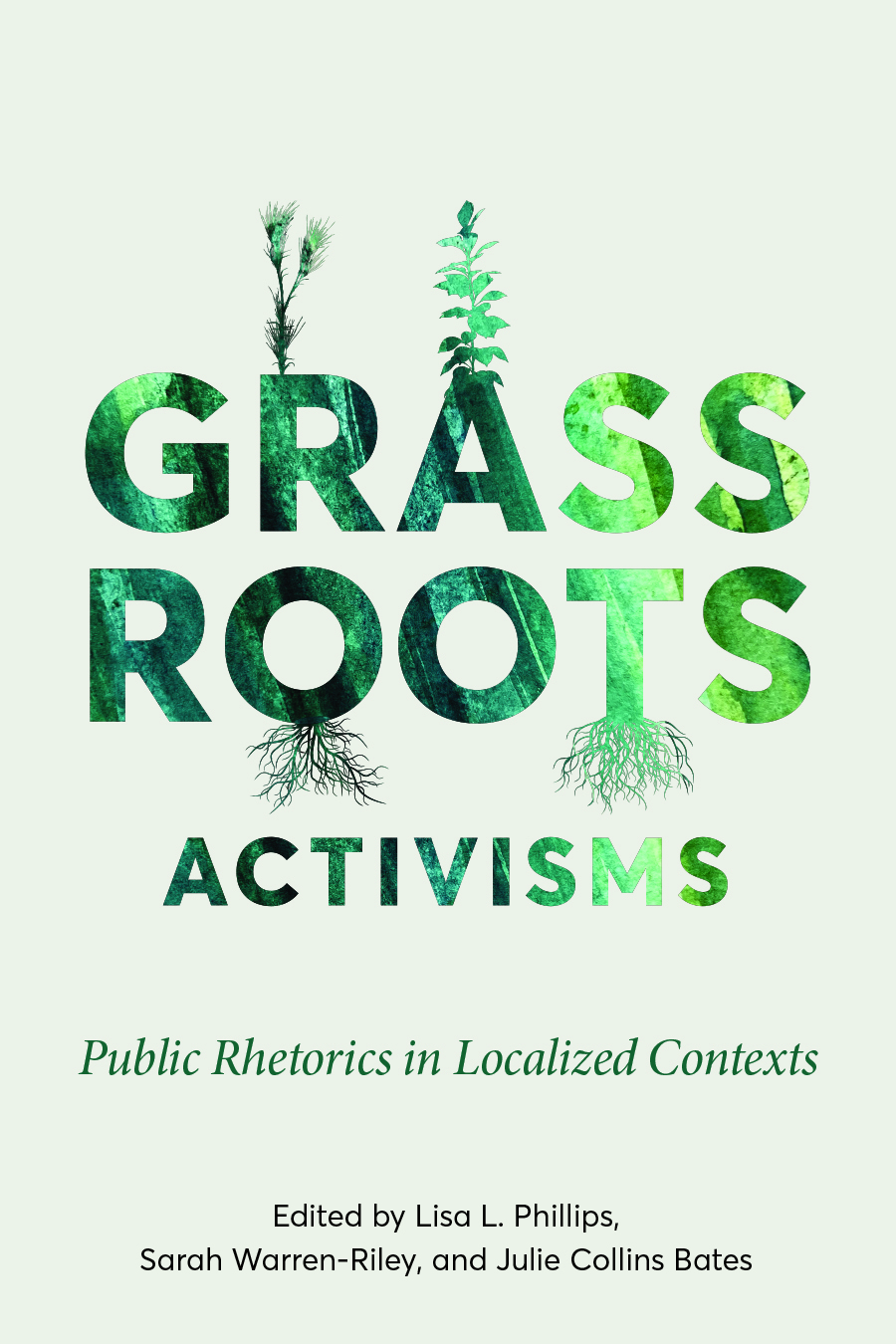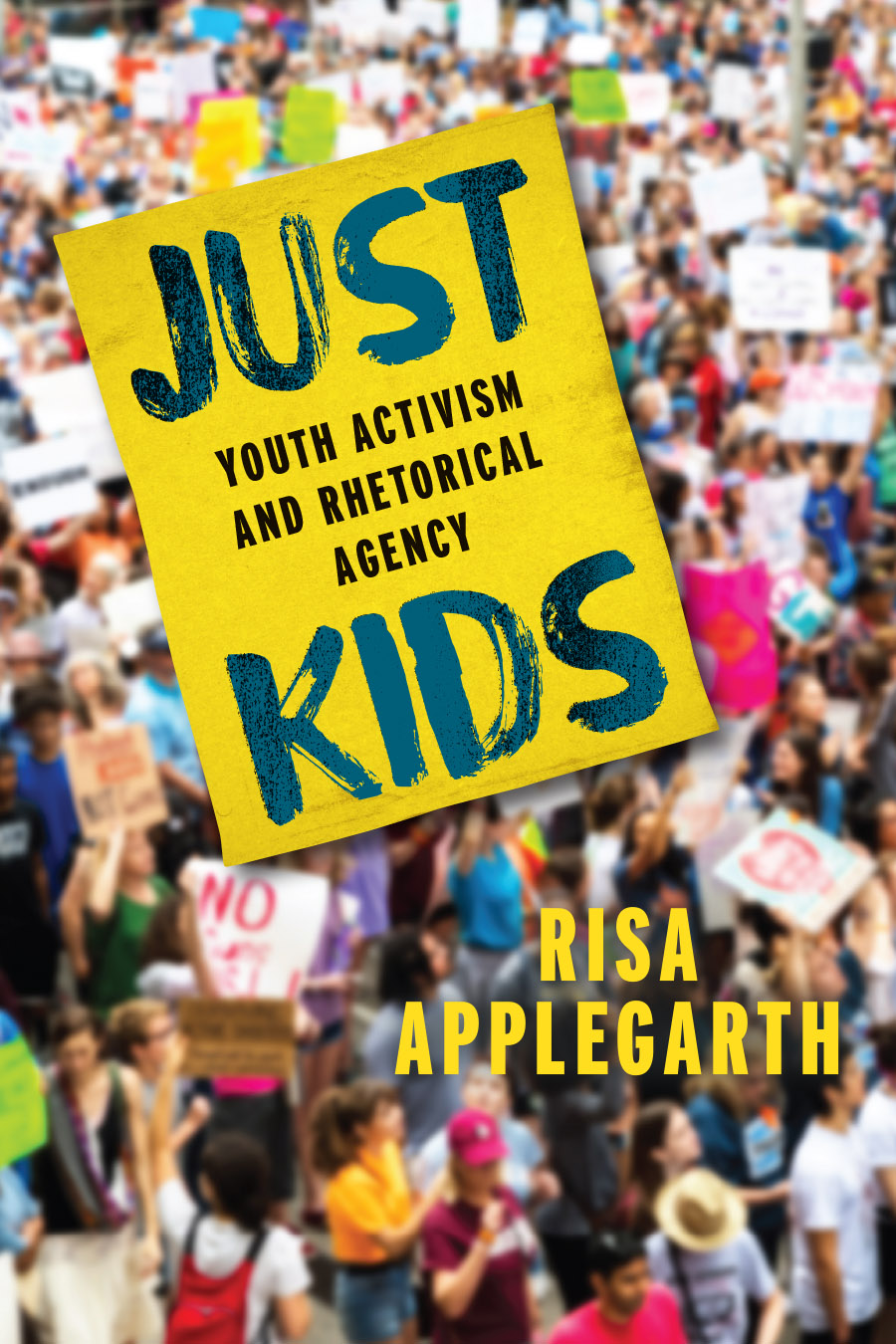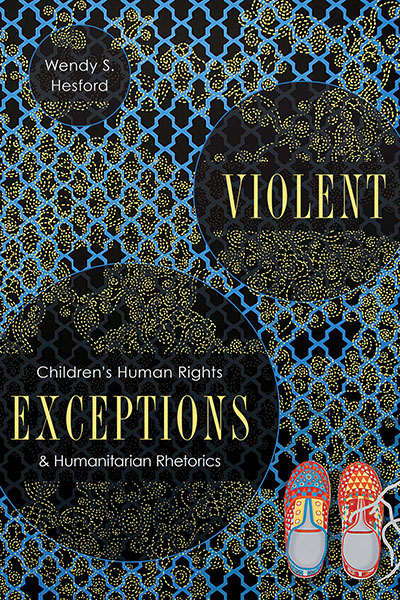Just Kids reviewed in Res Rhetorica
“Just Kids presents a compelling argument for centering youth voices in activism studies...Applegarth’s case studies effectively reveal how age can serve not merely as a constraint but as a powerful resource in advocacy...[the book] is essential reading for scholars interested in rhetoric, childhood studies, and social activism.” —Lingling Wang and Jiasheng Hu, Discourse & Society
“[Just Kids] is both methodologically innovative and prompts broader questions about some of rhetoric’s central concepts, such as power, agency, and temporality.” —Genevieve Gordon, Rhetoric Society Quarterly
“[Just Kids] successfully situates youth as equitable activists who both embody and advance expressions of rhetoric....Applegarth’s book would be best suited for students and academics in the fields of childhood development and social justice. It would also be formative and instructive for policy makers and activists working on the ground level.” —Tennae Maki, Lateral: Journal of the Cultural Studies Association
“Just Kids offers important insight into the recent rhetorical practices of young activists. Charting the persuasive tactics of children and adolescents advocating international peace, protection from deportation, and gun reform, it models innovative research methods and conceptualizes new methodologies for analyzing collective action for social and political change.” —Henrietta Rix Wood, author of Praising Girls: The Rhetoric of Young Women, 1895–1930
“Applegarth provides an in-depth study of major contemporary social movements and demonstrates how protesters and advocates often hold the key to understanding social change. Just Kids urges us all to evaluate the history of social movements as well as the methods we use in our research.” —Amanda Nell Edgar, author of Culturally Speaking: The Rhetoric of Voice and Identity in a Mediated Culture
Although children have prompted and participated in numerous acts of protest and advocacy, their words and labors are more likely to be dismissed than discussed as serious activism. Whether treated disparagingly by antagonistic audiences or lauded as symbols of hope by sympathetic ones, children and teens are rarely considered capable organizers and advocates for change. In Just Kids, Risa Applegarth investigates youth-organized activism from the 1990s to the present, asking how young people have leveraged age as a rhetorical resource, despite material and rhetorical barriers that limit their access to traditional forms of electoral power. Through case studies of antinuclear activism, im/migration activism, and activism for gun reform, this book reveals how childhood both limits and enables rhetorical possibility for young people. Drawing on interviews and focus group discussions with activists, Applegarth probes how participants understand the success and failure of their efforts beyond the immediate moment of impact. Methodologically innovative, Just Kids develops a framework of reflexive agency to make sense of how participants’ activism has mattered over time within their lives and communities.
Risa Applegarth is Associate Professor and Director of College Writing at the University of North Carolina at Greensboro and author of Rhetoric in American Anthropology: Gender, Genre, and Science, which won the Outstanding Book Award from the Conference on College Composition and Communication.
Introduction: Activism, Agency, and the Temporality of Childhood
Chapter 1: Agency as Embodied: Durable Activism for Peace
Chapter 2: Agency as Perspectival: Vulnerable Undocumented Activism
Chapter 3: Agency as Capacity: Disruptive Activism for Gun Reform
Conclusion: Reflecting on Activism and Age
Bibliography
Appendices
Related Titles:

Grassroots Activisms
Public Rhetorics in Localized Contexts
Edited by Lisa L. Phillips, Sarah Warren-Riley, and Julie Collins Bates



